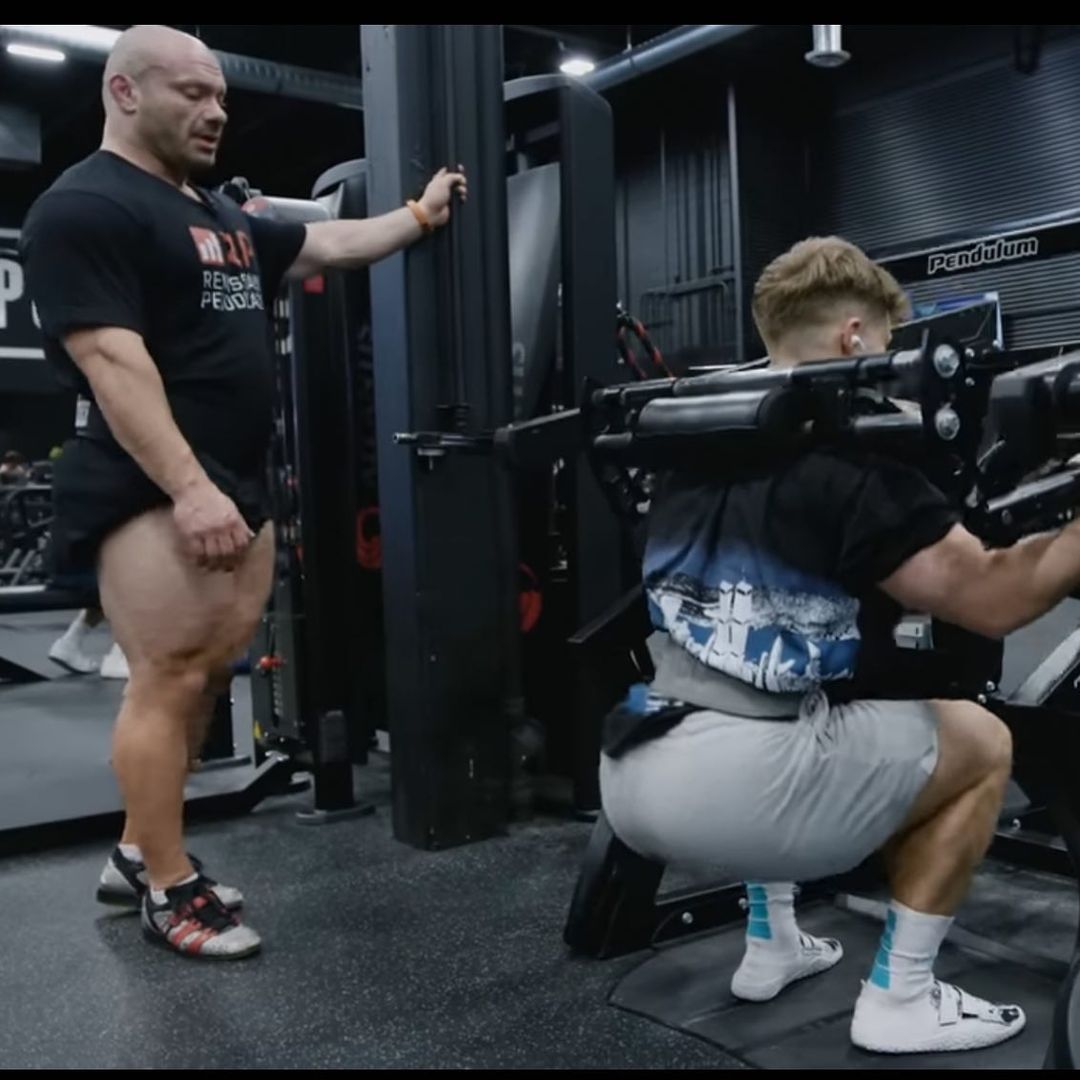

In 2020, the now-five-time Classic Physique Olympia champion Chris Bumstead posted about squatting barefoot on Instagram. The modern-day bodybuilding icon explained that he had been experimenting with barefoot squats and feeling the benefits. Today, barefoot squatting has gained more popularity among regular gymgoers. Despite the booming acceptance that the technique has got, there are some that advocate against it. This includes exercise scientist Mike Israetel.
Watch What’s Trending Now!
CBum had listed the benefits he felt after squatting barefoot. “Been training legs barefoot (sock foot) a lot more lately and I can’t deny it feels damn good. I feel more grounded, stable, and in some movements I can generate more mind-muscle connection,“ wrote Bumstead. However, the exercise scientist argued why you shouldn’t do it just because Chris Bumstead does it.
Dr. Mike Israetel explained some issues with barefoot squats in his latest video. According to the PhD holder in Sports Physiology, getting enough friction with the floor is essential for performing a squat. “High degree of friction allows for super stability. Which means you can push hard as f**k into the ground,” Israetel explained. On top of this, going barefoot may hinder stability.
ADVERTISEMENT
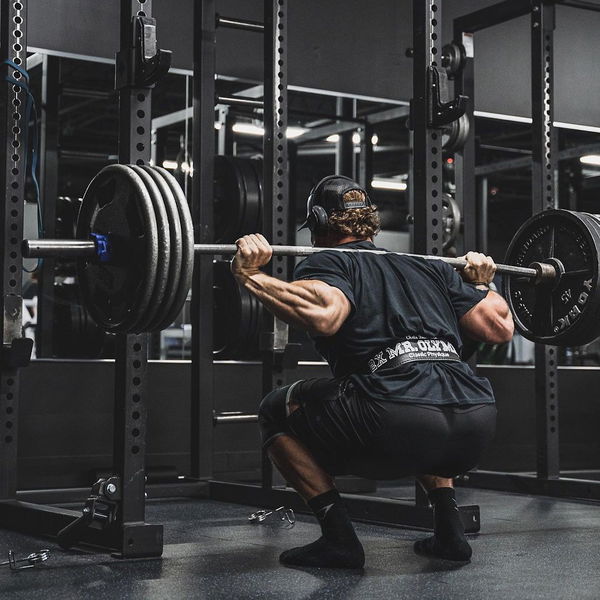
ADVERTISEMENT
Bare feet may slip due to sweat, and wearing socks could have similar results, according to the exercise scientist. Chris Bumstead only squats barefoot or in socks when he performs the movement on the Smith Machine or while doing Hack Squats. So, Mike Israetel says that the best option is to use weightlifting shoes.
The exercise scientist explained that the weightlifting shoe is designed to help you squat optimally as its flat and sturdy sole provides better friction. Unlike sports shoes, the cushioning also isn’t too soft, helping you perform the movement with stability. While Israetel explained its drawbacks, the bodybuilding coach didn’t dismiss barefoot squatting entirely.
ADVERTISEMENT
Mike Israetel explains when you should try barefoot squats
The competitive bodybuilder explained that you should only squat barefoot when you check a few essential boxes. Besides ensuring stability, you should also have ankle mobility. Mike Israetel explained that ankle mobility is among the central limiting factors when squatting. One should also ensure they’re not leaning forward or backward while performing the movement.
ADVERTISEMENT

Finally, the exercise scientist said you should feel comfortable. If you can meet these four criteria while squatting barefoot, Israetel recommends trying the movement. That being said, the bodybuilding coach added that one should not think that the movement has hidden advantages over squatting in weightlifting shoes.
ADVERTISEMENT
As the squat is an exercise that’s heavily dependent on the human anatomy, the way it is performed will vary from person to person. One individual may face no issues with their knees going over their toes, utilizing the maximum range of motion. Meanwhile, another person may get injured trying to match the other’s mobility. Owing to this fact, you should do barefoot squats only if it suits you.
Top Stories
Everything You Need to Know About Mr. Olympia’s Sole Owner Jake Wood, Who Also Brought Ms. Olympia Back

“Waste of Time”: Bodybuilding Fans React to Unusual Smith Machine Bicep Curls by Hollywood Star
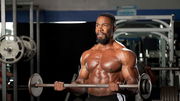
Top 5 Older Bodybuilders/Fitness Influencers Over 50 Who Are Defying Age and Inspiring Others
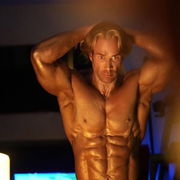
Serbian Bodybuilding Legend Shares Picture With Ronnie Coleman in Roman Warrior Attire
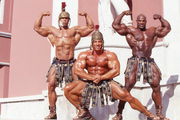
Who Is Angie Feliciano? The Woman Jay Cutler Has Been Engaged to for 7 Years

ADVERTISEMENT
ADVERTISEMENT
ADVERTISEMENT

